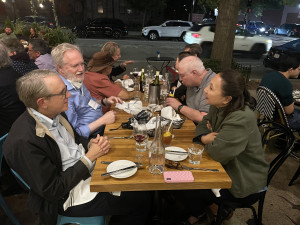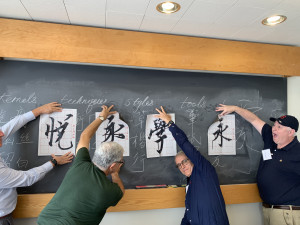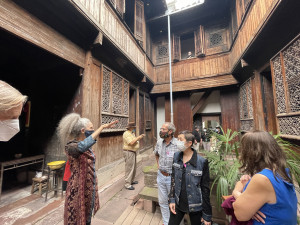The Arc of History in Asia:
Freedom and Authoritarianism in China and South Asia in the 20th and 21st centuries
Peter Perdue, Yale University
Denise Ho, Georgetown University
Zaib Aziz, University of South Florida
with
James Millward, Georgetown University
and Eric Schleussel, George Washington University
EverScholar in Washington
November 21-24, 2024
Washington, DC
$2395 per person
Modern China’s political regimes, from the Qing dynasty to the Republican period and the People’s Republic, have almost always been authoritarian one-party states. Even though elections were held in all three regimes, a single party dominated the process. Not until the end of martial law in Taiwan did a Chinese regime become a multi-party polity.
Colonial India, after 1857, was also an authoritarian regime in which the Indian population did not have equal civil rights or a voice in the government. After independence, India, Pakistan, and later Bangladesh have followed a variety of paths, including parliamentary democracy, military dictatorship and electoral authoritarianism.
Authoritarian regimes systematically repress dissent, but they do not rule by coercion alone. They buttress their legitimacy in other ways, by teaching official approved versions of history, by mobilizing civil society, by conducting public rituals, and by propagating symbols of national unity. Citizens resist as best they can, through protest, underground literature, and by rewriting national history to stress the rights of the people against the state.
Colonial regimes, such as the British and French, also denied equal rights to the colonized peoples, and ensured their domination through repression, surveillance, and the writing of histories that legitimated colonial rule. Anti-colonial organizers who evaded surveillance wrote alternative descriptions of the world that anticipated rebellions against the colonial powers. The victorious nationalists in India wrote a new constitution guaranteeing social and political rights, and despite attacks on it, it still shapes Indian politics today.
This seminar examines authoritarian states in China and South Asia from the eighteenth to twentieth centuries. We look at particular times of crisis, when the regimes faced challenges to their official ideology. How they responded may indicate possibilities for current – and future – democratic and authoritarian polities.
Our Lead Faculty:
Our Guest Faculty:
Readings
All EverScholar courses actually start months before our meeting. After registration, you will receive all books and scholarly articles for the course, and will immerse yourself in great works curated by our faculty. “The Arc of History in Asia” is no exception, with works ranging from contemporaneous writings to great books written by your own EverScholar professors. Primary sources will mix with authoritative texts to produce night after night of joy as you prepare for your return to the life of the mind.
Special Events
One of EverScholar’s unique and most beloved features are our Special Events; sessions at a number of well-known (such as a museum or Art Gallery) or less-known centers of collection and learning. “The Arc of History in Asia” continues this tradition.
Events for this program are anticipated at an assortment of the many riches that Washington, DC, has to offer, with experts guiding us.
Beyond the Classroom
Everything that happens during an EverScholar program is enhanced by the fact that it takes place in a learning-promoting environment.
This program takes place in Washington, DC. Discounted housing will be arranged at a fine Washington hotel near the site of the seminars.
Learn more about the experience! (Images below are from past EverScholar programs on a related topic)



The course begins with a reception and dinner on Thursday…. and ends in late afternoon Sunday. The program cost is $2,395 per person. Deposit is $500 per person. Balance is due on September 1, 2024. Cancellation refund and COVID-19 refund policies will be detailed on the registration page once registration opens – so you can register without worries.
Looking forward to seeing you there!





